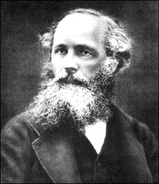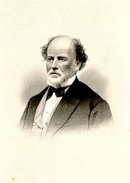Christianity is Not a Religion
Consult any reputable encyclopedia and it will define Christianity as a religion. For example the online Wikipedia - "Christianity is a monotheistic religion centered on Jesus of Nazareth, and on his life and teachings as presented in the New Testament." Or Answers.com - "Christianity - Religion stemming from the teachings of Jesus in the 1st century AD."
However, when ones goes to the Word of God, the Bible - the founding document of Christianity - for the definition of Christianity, one will discover that Christianity is not a religion.
Let's first define religion and then Christianity and then explain why Christianity is not a religion.
Religion:
* man's attempt to work his way into favor with God.
* man's way of working to appease God.
* man basing his salvation on his own works.
* man seeking fulfillment or inner peace or a state of enlightenment within himself or to the exclusion of God.
Man's attempt to work his way into favor with God.
The first example of religion mentioned in the Bible is the religion of Cain, also referred to as the 'way of Cain' in Jude 11, found in Genesis 4:
3 In the course of time Cain brought some of the fruits of the soil as an offering to the Lord. 4 But Abel brought fat portions from some of the firstborn of his flock. The Lord looked with favor on Abel and his offering, 5 but on Cain and his offering he did not look with favor. So Cain was very angry, and his face was downcast. 6 Then the Lord said to Cain, "Why are you angry? Why is your face downcast? 7 If you do what is right, will you not be accepted? But if you do not do what is right, sin is crouching at your door; it desires to have you, but you must master it."
Abel brought "fat portions from some of the firstborn of his flock. The Lord looked with favor on Abel and his offering." God was pleased with Able's offering which looked forward to God's offering - His only begotten Son. But God did not look with favor on Cain's offering, "some of the fruit of the soil." Evidently, God had taught Adam and Eve what kind of an offering would be acceptable in God's sight. And that offering involved the shedding of blood, not the efforts from working the soil as Cain's offering was. Able approached God in the way God instructed, and Cain attempted to please God in his own way. If Cain would only do what God asked, he would be accepted. Cain refused to worship God in the way God instructed.
Cain's efforts in approaching God was based upon his own work, the work of his hands. Abel's approach was not based upon his own efforts but upon the first fruit of his flock, no doubt an innocent lamb.
The point being, man has avoided God's way and devised his own way from the beginning.
Man's way of working to appease God.
Men quite often perceive God [or the gods of their own making] as a God [or gods] to be feared. They view God [or gods] as an angry God. A God to be appeased in an effort to stave off His wrath. To appease God, man has invented sacrifices of their own creation. From the beginning man has sacrificed to idols in his effort at appeasment.
Exodus 20:
"4 Thou shalt not make unto thee any graven image, or any likeness of any thing that is in heaven above, or that is in the earth beneath, or that is in the water under the earth: 5 Thou shalt not bow down thyself to them, nor serve them: for I the LORD thy God am a jealous God, visiting the iniquity of the fathers upon the children unto the third and fourth generation of them that hate me;"
Man has so feared the wrath of gods that he has created idols of those gods to which he bows down to and serves. Since antiquity, man has constucted many gods - gods of the rain, river gods, crop gods, gods of life and death. While Moses was on Mount Sinai, Aaron, Moses' right-hand man and Israel's high priest, was persuaded by the Israelites to construct a golden calf to which the young Jewish nation, just delivered from Eygpt's God pharoah, bowed down to. The Mayan's constructed great pyramids and temples around which they sacrificed their young virgin women in an effort to appease their obviously demanding gods, and which undoubtedly help lead to the downfall of their civilization, for how can a civilzation that kills off their young women survive?
Today, examples exist of modern day religions that use sacrifice in their appeasment attempts. The Roman Catholic Church daily offers at their altars what they refer to as the 'bloodless sacrifice' to God through their celebate paedophile priests. Adherents to Islam believe prayer - Salah - is an obligation, sacrificing their time five times daily, rising as early as 4 a.m. while facing east, in an effort to please their god, ask for forgiveness and mercy "You have bestowed Your grace, those whose lot is not wrath," from a god they perceive as angry and vengeful, a god to be feared. In many personal conversations with devote Muslims, they expressed their concept of God as an angry God, a God to be feared, a God that expects the straight path to be walked upon. They fear the reprimand of God should they stray off the path, hence the need for prayer five times daily, to help keep them on the path.
Prayer is the first duty imposed by Allah upon mankind after that of belief in the oneness of Allah. Prayers are also an act to be accounted for on the Day of Judgement among other deeds carried out by servants of Allah. The Prophet (pbuh) said: “The first thing of the slave to be reckoned on the Day of Judgement will be his Prayer. If it is good, the rest of his deeds will be (accounted as) good. And if it is rotten, the rest of his deeds will be rotten”. (Tabarani)
Prayer constitutes one pillar of Islam and is considered the foundation of religion. Any Muslim who fails to do his prayers and has no reasonable excuse is committing a grave offense and a heinous sin.
http://www.al-islam.com/
We see in Islam, like many other religions, a fear, not in the sense of reverential trust, but a fear as in afraid, of God. Therefore, many actions of adherents of Islam, when living out their faith, such in the daily prayer ritual, are done, not so much as a voluntary act of worship, but one of obligation based upon fear.
Man basing his salvation on his own works.
Similar to man attempting to work his way into favor with God, man tries to have his work accepted by God for his salvation. By doing so, man rejects God's work, and replaces it with his own works.
But God's Word plainly states that man can not be saved by his own works:
Ephesians 4: 8 For it is by grace you have been saved, through faith--and this not from yourselves, it is the gift of God 9 not by works, so that no one can boast.
Romans 9: 2 If, in fact, Abraham was justified by works, he had something to boast about--but not before God. 3 What does the Scripture say? "Abraham believed God, and it was credited to him as righteousness." 4 Now when a man works, his wages are not credited to him as a gift, but as an obligation. 5 However, to the man who does not work but trusts God who justifies the wicked, his faith is credited as righteousness. 6 David says the same thing when he speaks of the blessedness of the man to whom God credits righteousness apart from works: 7 "Blessed are they whose transgressions are forgiven, whose sins are covered. 8 Blessed is the man whose sin the Lord will never count against him."
[still under construction]




















